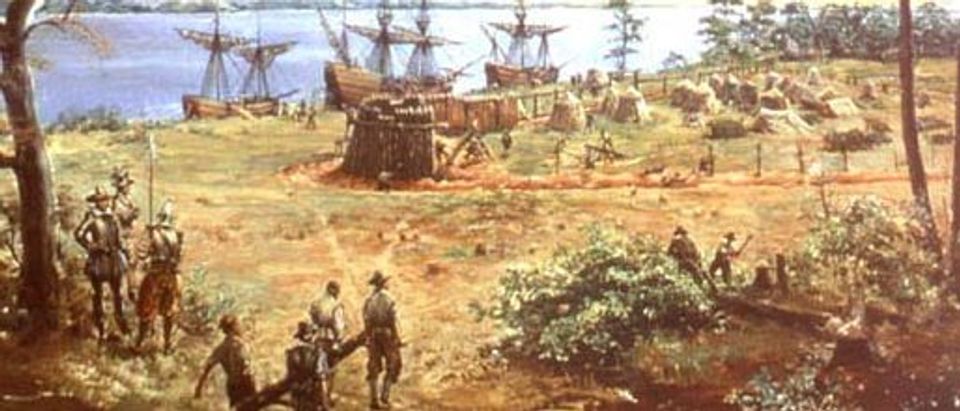In 1619 — 400 years ago (and before the Pilgrims landed in Massachusetts) — America experienced its first labor strike. The strike happened in the Jamestown settlement in Virginia. The strikers were craftsmen from Poland. They downed tools because their English employers would not give them the right to vote in the colony’s first election. Their lesson on the importance of skilled labor remains relevant today.
Although the stories of Captain John Smith and Pocahontas are well known, less well known is the story of the Poles who worked to make Jamestown a functioning settlement.
Smith had encountered Polish craftsmen when he traveled in the Polish-Lithuanian Commonwealth in 1603. By 1608, the first group of Poles landed in Jamestown; they were engaged in producing glass, tar, pitch, and ashes for soap-making. Some stories have the Poles teaching the Englishmen how to dig wells and build log cabins.
There is some verisimilitude about this; Smith’s companions likely were landless second or third sons of the English gentry and thus had no practical skills nor interest in learning any. Similarly, their personal servants probably were valets — without practical skills for surviving in a wilderness.
Meanwhile recruitment in Poland continued, with two more waves of Polish immigrants landing in 1609 and 1616.
By 1619, the colony was large enough to support a local governing body: the House of Burgesses. However, the right to vote was limited to Englishmen only. The Poles, whose contributions had proved vital to the survival and prosperity of the colony, were excluded.
These Polish men made a simple and dramatic statement for their voting rights: they stopped working. This was the first labor strike in America; it also was the first civil rights protest.
As the Poles’ glass furnaces cooled, everyone could see how Jamestown would be out of the glassmaking business without the Polish artisans. Likewise, the fires went out for making tar and pitch — vital to the shipbuilding industry at that time. Nobody was making soap-ashes either.
The strike was a success. On July 21, 1619, the colony’s court book stated “the Polonians resident in Virginia … shall be enfranchised, and made as free as any inhabitant there whatsoever.” The court book entry also noted how young men (presumably Englishmen) would be apprenticed to the “the Polonians” to learn how to make pitch, tar, and soap-ashes. The record is silent as to whether any Englishmen opted to get their hands dirty — literally.
The Poles probably lacked the language skills if not the knowledge to make the case for enfranchisement based on philosophical principles. Fortunately, philosophy was unnecessary for them to win. Rather, their success lay in targeting the Englishmen’s pocket books.
Four hundred years later, the lesson of the Poles in Jamestown is clear: skilled labor is an important part of the larger society. The Jamestown Englishmen felt, as some Americans do today, how skilled labor belonged to a lower class which had an aura of unworthiness about it. The Polish artisans of 1619 proved them wrong. We would do well to remember their lesson, especially as it is contra to the popular notion that everyone must have a college degree to get ahead.
What the Poles proved in Jamestown still holds true now: if a person has the training and skills that are in demand by employers, that person has the power to succeed.
Szczęśliwy dzień pracy! (Happy Labor Day!)
Joanne Butler was an international trade specialist at the Office of the U.S. Trade Representative and at the Foreign Agricultural Service at USDA in the George H.W. Bush administration. In the George W. Bush administration, she was a senior adviser and speechwriter at the Department of Labor.
The views and opinions expressed in this commentary are those of the author and do not reflect the official position of The Daily Caller.


